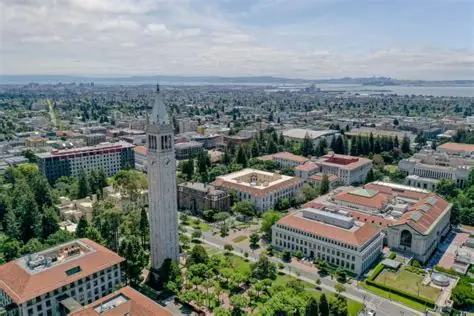Northeastern University, located in Boston, Massachusetts, is a renowned private research university known for its innovative educational approach and strong emphasis on experiential learning. Established in 1898, Northeastern has evolved into a global institution that attracts students from around the world. One of the defining characteristics of Northeastern University is its commitment to experiential learning. The university’s cooperative education (co-op) program allows students to integrate classroom learning with professional work experiences. Through co-op, students alternate between periods of full-time employment with industry-leading organizations and traditional academic semesters. This approach provides students with real-world exposure, practical skills, and a competitive edge in the job market.
Northeastern has embraced a global perspective and actively promotes international experiences for its students. The university offers numerous opportunities for studying abroad, conducting research, and participating in service-learning projects in different parts of the world. Northeastern’s network of international partner institutions encourages cross-cultural understanding and collaboration.
Northeastern University is a leading research institution. Faculty members and students engage in groundbreaking research across a wide range of disciplines, addressing pressing societal challenges and advancing knowledge. The university’s research centers and institutes focus on areas such as artificial intelligence, cybersecurity, sustainability, healthcare, urban studies, and social justice.
Location
Northeastern University’s 73-acre campus is located in the heart of Boston, Massachusetts. While Northeastern is located in an urban environment, the campus features beautiful green spaces that offer a refreshing retreat from the city bustle. The Centennial Common, Krentzman Quad, and Snell Library Quad are among the well-maintained outdoor spaces where students can relax, study, and socialize.
The campus showcases a mix of architectural styles, ranging from historic buildings to contemporary structures. Notably, the Snell Engineering Center, the Interdisciplinary Science and Engineering Complex (ISEC), and the Curry Student Center are standout buildings that contribute to the campus’s aesthetic appeal. The Curry Student Center houses dining options, student organizations, and event spaces, while the Marino Recreation Center offers fitness facilities, indoor tracks, and swimming pools. The Interdisciplinary Science and Engineering Complex features open collaboration spaces, research labs, and areas for cross-disciplinary collaboration.
Northeastern’s campus is designed to be pedestrian-friendly, with interconnected pathways that facilitate easy navigation between academic buildings, residence halls, and recreational facilities. The university’s commitment to sustainability is evident through initiatives like bike-sharing programs and green transportation options.
Northeastern has also expanded its footprint with satellite campuses in other cities, including Seattle, San Francisco, Charlotte, and Toronto, further enhancing its global reach.
Read More: University of Notre Dame
Student Cohort Size
Northeastern University has 22,314 undergraduate students and 19,528 graduate students. The student population comprises of 9,985 women and 9,510 men. There are 10,653 international students.
Four-Year Completion Rate
The graduation rate is among the most important factors when selecting a college. Northeastern University’s first-year retention rate is 97%. This means that 97% of first-year students continue their education for their sophomore year and beyond. The 6-year graduation rate is 87%. This implies that 87% of students were able to graduate after 6 years.
Student-to-Faculty Ratio
The student-to-faculty ratio at Northeastern University is 14:1 and 61.8 percent of classes have fewer than 20 students.
Admissions
Acceptance Rate
Northeastern received 96,327 applications for fall 2023, up from 91,100 in 2022, 75,233 in 2021 and 64,428 in 2020. That’s an increase of 31,899 applicants, or 49.5%, over four years. Class of 2027 had the lowest acceptance rate of 3.2%.
Types of Admission
Northeastern University applicants can apply through the Early Action, Early Decision I and II, or Regular Decision programs. Early Decision I and II is a binding admission plan for students who have determined that Northeastern University is their first choice and who feel they can present a strong application without senior grades being reviewed. Students admitted through the Early Decision admission plan are required to cancel their applications elsewhere and enroll in Northeastern University. Early Action is a non-binding and unrestrictive admission plan that may be an attractive option for those who feel they can present a strong application without senior grades being reviewed. Regular Decision is a non-binding and unrestrictive admission plan that allows students more time to complete the application and to have grades from the first term of their senior year considered in the review.
Application Components
Application: Submit the application through Common Application or Coalition Application
Transcript: Your Official High School Transcript must be submitted to Northeastern by your counselor or another school official. Transcripts should include any final grades from grades 9, 10, and 11; first-trimester or first-semester grades should be sent when they become available.
Standardized Test Scores: Northeastern University is test-optional and does not require applicants to submit standardized testing to be considered for admission.
Counselor Recommendation and Teacher Evaluation: Northeastern University requires one teacher recommendation and one school counselor recommendation. If someone else has written on your behalf and offers a different viewpoint, you may submit 1-2 additional recommendations.
Academics
Northeastern offers a wide range of undergraduate and graduate programs across various disciplines, including business, engineering, computer science, health sciences, social sciences, humanities, and the arts. The university is organized into nine colleges, including the College of Engineering, College of Science, College of Social Sciences and Humanities, D’Amore-McKim School of Business, and Bouvé College of Health Sciences. Each college is dedicated to fostering academic excellence, conducting groundbreaking research, and preparing students for successful careers.
College of Arts, Media, and Design (CAMD): The College of Arts, Media, and Design is dedicated to fostering creativity, innovation, and critical thinking in the arts and media. It encompasses disciplines such as architecture, art, communication studies, game design, journalism, music, theater, and more. CAMD emphasizes hands-on learning, collaboration, and the integration of technology with artistic expression.
College of Computer and Information Science (CCIS): The College of Computer and Information Science offers comprehensive programs in computer science, data science, cybersecurity, and information science. CCIS focuses on cutting-edge research and prepares students for careers in software development, artificial intelligence, machine learning, cybersecurity, and other areas of computing and information technology.
College of Engineering: The College of Engineering is renowned for its rigorous and innovative programs in various engineering disciplines, including mechanical engineering, electrical engineering, civil engineering, bioengineering, and more. The college emphasizes a hands-on approach, interdisciplinary collaboration, and the application of engineering principles to address real-world challenges.
College of Health Sciences: The College of Health Sciences is committed to advancing healthcare practices and addressing critical issues in health and wellness. It offers programs in areas such as nursing, pharmacy, physical therapy, speech-language pathology, public health, and health sciences. The college focuses on interprofessional education, research, and community engagement to promote optimal health outcomes.
College of Professional Studies (CPS): The College of Professional Studies provides flexible and career-focused education for adult learners and professionals. CPS offers a wide range of undergraduate and graduate programs, including degrees in fields such as business administration, leadership, project management, information technology, and more. The college offers online, hybrid, and on-campus learning options to accommodate the needs of working professionals.
College of Science: The College of Science offers comprehensive programs in disciplines such as biology, chemistry, physics, mathematics, and environmental science. It emphasizes hands-on laboratory experiences, research opportunities, and interdisciplinary collaborations. The college prepares students for careers in scientific research, healthcare, environmental sustainability, and other scientific fields.
College of Social Sciences and Humanities (CSSH): The College of Social Sciences and Humanities explores the complexities of human society, culture, and behavior. It offers programs in areas such as sociology, psychology, economics, political science, history, philosophy, international affairs, and more. CSSH emphasizes critical thinking, ethical reasoning, and a global perspective to address social, political, and cultural issues.
D’Amore-McKim School of Business: The D’Amore-McKim School of Business is renowned for its innovative business education and industry-focused programs. It offers undergraduate, graduate, and executive education in fields such as finance, marketing, entrepreneurship, supply chain management, and more. The school emphasizes experiential learning, global business perspectives, and collaboration with industry partners.
School of Law: The School of Law prepares students for careers in the legal profession through its comprehensive Juris Doctor (JD) program. The curriculum emphasizes experiential learning, legal research, and practical skills development. The School of Law offers various clinics, internships, and opportunities for students to engage in real-world legal work and advocacy.
Each of these colleges at Northeastern University contributes to the university’s overall commitment to academic excellence, experiential learning, interdisciplinary collaboration, and addressing societal challenges through research and innovation.
Read More: University of South Carolina
Cost of Attendance
Tuition and Fees
Tuition and Fees Per Full Semester
Tuition $29,550
Student Center Fee $70
Student Activity Fee $148
Campus Recreation Fee $60
Undergraduate Student Fee $310
Room, Board, and Fees per Semester
Tuition and Fees Per Full Semester
Residential Student Fee $32
Housing Rates begin at $5,1251
17-Meal Plan $4,090
Student Life
Northeastern University fosters a strong sense of community and encourages students to engage in co-curricular activities. The university offers a wide range of student organizations, clubs, sports teams, and cultural groups, providing opportunities for personal growth, leadership development, and community service. Students can also participate in internships, entrepreneurial ventures, and community-based projects that complement their academic pursuits.
To conclude, Northeastern University stands as a prestigious institution renowned for its academic excellence, commitment to experiential learning, global engagement, cutting-edge research, and vibrant campus community. With its emphasis on preparing students for successful careers in a rapidly evolving world, Northeastern continues to attract talented individuals who seek a transformative educational experience.
We can help you with your college application process. Working with study abroad consultants, overseas education consultants, or, as more commonly known, college counselors, can help you plan ahead and make those high school years count. Ivy Central offers exceptional focus to help you prepare for college admissions throughout the high-schooling years. Start today!








